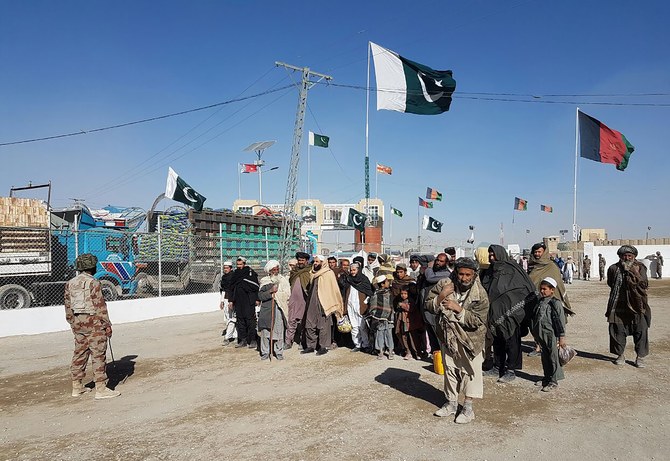PESHAWAR – In a significant stride toward strengthening Pakistan-Afghanistan relations, a trilateral meeting in Beijing on May 21, 2025, has sparked optimism for deeper diplomatic ties, economic collaboration, and robust counter-terrorism efforts.
Facilitated by China, the talks between Pakistan’s Deputy Prime Minister and Foreign Minister Mohammad Ishaq Dar, Afghanistan’s Acting Foreign Minister Amir Khan Muttaqi, and Chinese Foreign Minister Wang Yi have laid the groundwork for a new era of regional connectivity and stability.
This breakthrough signals hope for resolving long-standing tensions and fostering economic integration through ambitious projects like the China-Pakistan Economic Corridor (CPEC).
A Diplomatic Leap Forward for Pakistan-Afghanistan Relations
The Beijing meeting marks a pivotal moment in Pakistan-Afghanistan relations, which have been strained since the Taliban’s return to power in 2021. Both nations agreed to exchange ambassadors, elevating their diplomatic engagement from the current chargé d’affaires level.
Wang Yi celebrated the move, stating, “Pakistan and Afghanistan have shown clear intent to strengthen ties and will exchange ambassadors soon.” This decision builds on progress from Dar’s April 19, 2025, visit to Kabul, where both sides committed to preventing their territories from being used for terrorism.
China’s mediation has proven instrumental in fostering dialogue, offering a neutral platform to address issues like border disputes and Pakistan’s concerns over the Tehreek-e-Taliban Pakistan (TTP). The commitment to ambassadorial exchange signals a mutual desire to mend Pakistan-Afghanistan relations and move beyond historical frictions.
CPEC’s Expansion: A Boost for Regional Connectivity
A key outcome of the talks was the agreement to extend CPEC to Afghanistan under China’s Belt and Road Initiative (BRI). This move promises to transform Pakistan-Afghanistan relations by integrating Afghanistan into a multi-billion-dollar economic corridor. China has pledged financial support for the Pakistan-Afghanistan-Uzbekistan railway project, with signatures expected in Uzbekistan in early June 2025. The proposed Peshawar-Kabul highway, part of this initiative, will enhance trade links and elevate the strategic importance of Pakistan’s Gwadar port.
Ishaq Dar called the CPEC 2.0 discussions “promising,” emphasizing their potential to drive trade, infrastructure, and job creation. Afghanistan’s inclusion in CPEC could reshape the region’s economic landscape, offering opportunities for sustainable development and regional integration.
Counter-Terrorism
Pakistan’s concerns over TTP activities originating from Afghanistan have long hindered Pakistan-Afghanistan relations. The trilateral talks tackled this issue head-on, with all parties agreeing to a zero-tolerance policy on terrorism. No group—be it TTP, Balochistan Liberation Army, or others—will be allowed to use any nation’s soil for attacks. Dar reiterated Pakistan’s resolve, stating, “We will combat terrorism decisively, as we did in Operation Zarb-e-Azb.” He also addressed China’s concerns about attacks on its personnel in Pakistan, noting ongoing discussions for a permanent anti-terrorism mechanism.
Afghanistan’s commitment to curbing terrorism is a significant step, potentially easing tensions and fostering trust in Pakistan-Afghanistan relations. Wang Yi urged all parties to oppose terrorism unequivocally, reinforcing the need for collective action.
China’s Diplomatic Leadership
China’s role in orchestrating these talks highlights its growing influence in regional diplomacy. By hosting the trilateral dialogue, Beijing has positioned itself as a key mediator in resolving tensions and promoting economic integration. The decision to hold the sixth Trilateral Foreign Ministers’ Meeting in Kabul underscores China’s commitment to sustaining this platform. This “mini-multilateralism” approach addresses specific regional challenges, creating a framework for stability that benefits all three nations.
Economic and Security Synergy
Extending CPEC to Afghanistan opens vast investment and employment opportunities, particularly for Afghanistan’s economy. The railway and highway projects could integrate Afghanistan into regional trade networks, boosting its development capacity. However, experts stress that trade and security are interlinked. Ihsanullah Tipu, an Islamabad-based analyst, told Al Jazeera, “For meaningful trade ties, Pakistan’s security concerns must be addressed.” Afghanistan’s Taliban leadership must act decisively against terrorist groups and ensure basic rights to fully leverage these opportunities.
Challenges and Opportunities Ahead
Despite the progress, challenges persist. The Taliban’s past reluctance to address TTP activities and border disputes, including the Durand Line, have fueled tensions. China’s mediation offers a pathway to resolve these issues through dialogue, potentially creating a more stable region. The Taliban’s commitment to counter-terrorism and human rights could also enhance their international legitimacy, though formal recognition remains contingent on inclusive governance.
The Beijing talks have set a positive tone for Pakistan-Afghanistan relations, with China’s mediation proving transformative. The agreements to exchange ambassadors, extend CPEC, and combat terrorism mark significant steps toward regional integration. As Dar noted, “Pakistan, China, and Afghanistan stand united for peace, stability, and development.” With sustained commitment, these efforts could usher in a new era of prosperity and security for the region.












